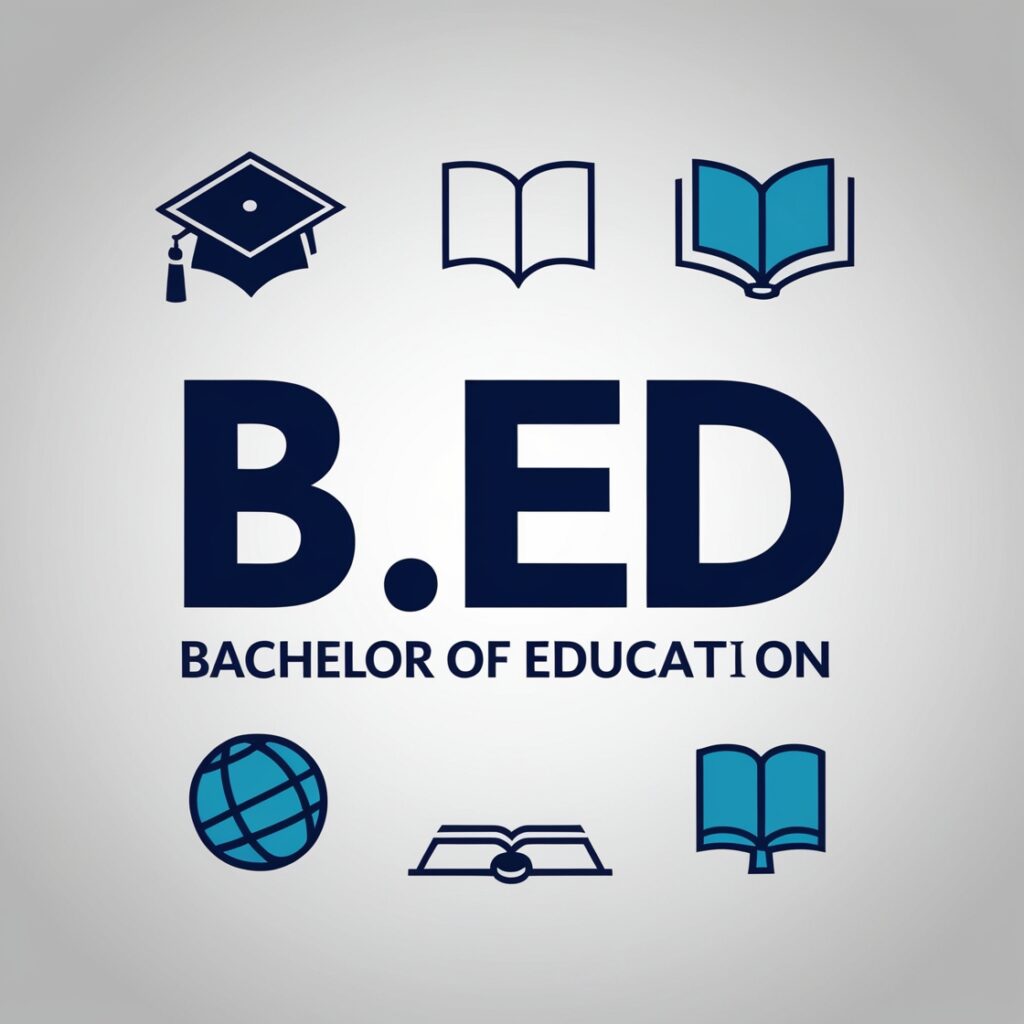Full form of B.Ed

Full form of B.Ed is Bachelor of Education.
It is an undergraduate degree course for those students who want to make career in the field of teaching. It is formerly called Bachelor of Teaching (BT). This course duration is of two years. The candidates become eligible for teaching in intermediate and high schools after completing the course. B.Ed is necessary for the candidates to teach in high schools in India.
Eligibility Criteria for B.Ed
The candidates must have to clear the B.Ed entrance exam to get admission in B.Ed course.
To become eligible for the B.Ed entrance exam, the minimum education qualification required is the undergraduate degree from recognized university of India. For example, the candidates who have the degrees like, B.SC, B.COM or B.A are eligible for the B.Ed entrance exam.
The candidates must have minimum of 50 % marks required in graduation.
Why Choose Bachelor of Education (B.Ed)?
Why should you consider pursuing a B.Ed degree? For starters, it’s a gateway to a fulfilling career in education. Teaching is not just a profession; it’s a calling.
- Professional Qualification: A B.Ed degree is often a mandatory requirement for teaching positions in schools, ensuring you meet the necessary qualifications to pursue a career in education. Understanding the bed full form and its significance can enhance your motivation for this path.
- Pedagogical Expertise: The program equips you with essential teaching skills and knowledge, including educational psychology, curriculum design, and effective teaching methods, which are crucial for fostering a productive learning environment. Knowing the full form of B.Ed helps in recognizing its importance in educational settings.
- Practical Experience: The B.Ed curriculum includes hands-on teaching practice and internships, providing real-world experience in classrooms and helping you develop confidence and competence in teaching. This practical exposure is invaluable for aspiring educators.
- Specialisations: You can choose to specialize in particular subjects or education levels, such as primary or secondary education, allowing you to tailor your career to your interests and strengths. Understanding the B Ed degree full form can help you communicate your qualifications effectively.
- Career Opportunities: A B.Ed degree opens up diverse career opportunities not only in teaching at primary, secondary, and higher secondary schools but also in educational administration, curriculum development, and educational consulting.
B.Ed Admission Process
The admission process for a B.Ed course typically involves several steps:
- Eligibility Check: Candidates need a recognized undergraduate degree with a minimum percentage. Some programs may have additional requirements.
- Application Submission: Submit application forms with relevant documents and fees before the deadline.
- Entrance Examination: Many institutions conduct entrance exams to assess aptitude, subject knowledge, and teaching skills.
- Counselling and Interview: Shortlisted candidates may attend counseling or interviews to evaluate their suitability for the program.
- Merit List and Admission Offer: Successful candidates receive admission offers based on their performance in entrance exams and interviews.
- Document Verification and Fee Payment: After accepting the offer, candidates undergo document verification and pay the course fees.
- Commencement of Classes: Orientation sessions precede regular classes, marking the beginning of the B.Ed programme. By navigating through these steps successfully, aspiring educators can secure admission to B.Ed programmes and begin their journey towards a rewarding career in teaching.
B.Ed Entrance Exams in India
In India, for the selection of candidates in B.Ed course, some colleges or universities conduct the B.Ed entrance exam. Here’s the list of such B.Ed Entrance Exams:
- Gujarat University B.Ed Entrance Test
- Maharashtra B.Ed Common Entrance Test
- Himachal Pradesh University B.Ed Entrance Test
- Lucknow University B.Ed Entrance Test
- Jammu Kashmir B.Ed Entrance Test
- Uttar Pradesh B.Ed Joint Entrance Test
- Telangana State Education Common Entrance Test
- Guru Nanak Dev University B.Ed Entrance Test
Career Scope and Salary for B.Ed
Scope
The scope of a Bachelor of Education (B.Ed) degree is extensive, offering various career opportunities in the field of education and related sectors. B.Ed graduates can pursue teaching roles in primary, secondary, and higher secondary schools, as well as explore careers in educational administration, curriculum development, educational consultancy, and further studies in education-related fields.
B.Ed graduates can apply for various fields for their career. They can make career in below given some of positions,
- Content Writer
- Counselor
- Online Teacher or Course Seller
- Educational Researcher
- Home Tutor
Salary
The salary of a B.Ed (Bachelor of Education) graduate varies depending on factors such as teaching experience, location, type of educational institution, and additional qualifications. On average, B.Ed graduates can expect competitive remuneration packages that reflect their expertise and contributions to the field of education.
| Factor | Salary Range |
| Starting Monthly Salary | INR 17,000 – INR 30,000 |
| Average Annual Salary (Beginners) | INR 2.2 Lakhs – INR 3.5 Lakhs |
| Mid-Career (4-9 Years Experience) | INR 4.3 Lakhs (approx) |
| Government Schools (Monthly) | INR 35,000 – INR 80,000+ (depending on experience and pay scale) |
| Private Schools (Primary, Monthly) | INR 20,000 – INR 30,000 |
| Private Schools (High School, Monthly) | INR 25,000 – INR 40,000 |
Conclusion
Choosing to pursue a Bachelor of Education (B.Ed) degree is a significant step towards a rewarding career in education. Understanding the bed full form, B Ed degree full form, and the full form of B.Ed can provide clarity on the importance of this qualification in the education sector. With the right preparation and dedication, you can embark on a fulfilling journey as an educator.
